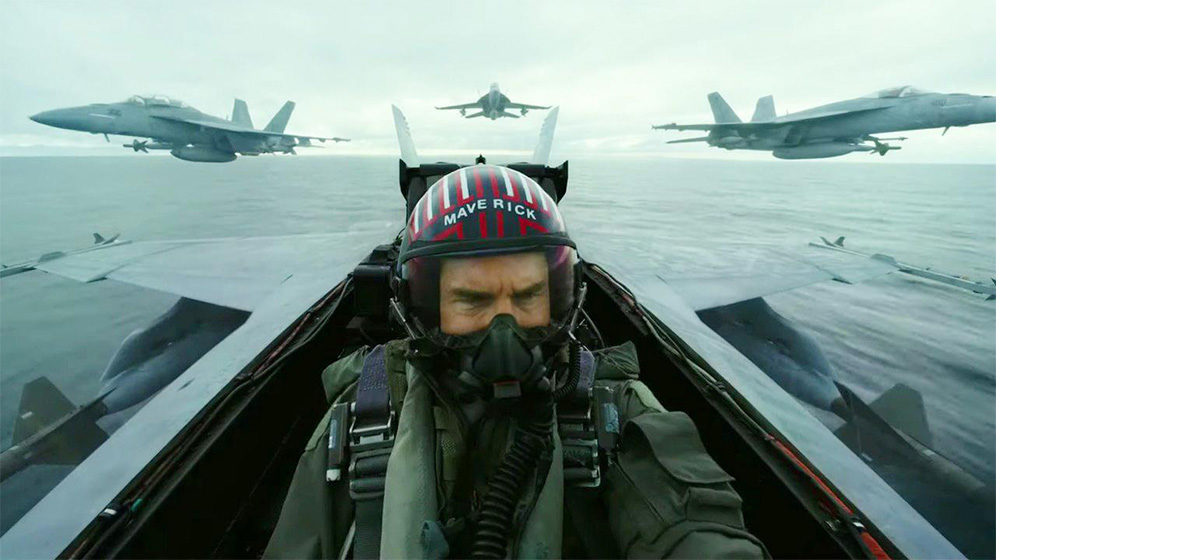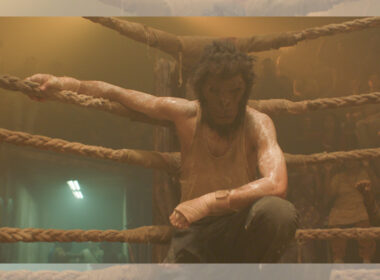Film rating: ****
Boys will forever be boys. That was the underlined message of the original Top Gun back in 1986. Ronald Reagan was the President of the United States of America, and there was a conscientious effort for popular art to laud the apparent superiority of the west. The Cold War was entering its third act, America was about to attain its cultural difference, and here comes a film that had everything to lose – and yet it wasn’t much of a risk for its producers.
The impact of a film like Top Gun cannot be compared to today’s standards. It was only the second feature from a hot new director, starring a who’s who of upcoming Hollywood actors on the cusp of international stardom. It hit all the notes of popular entertainment. It was about soldiers but barely featured any war. Even the “enemies”, when they finally show up, are a cartoonish generic evil country with no resemblance to anywhere else in the world. It hit the zeitgeist on its pulsating core like very few other works of art can.
Perhaps the most valuable appreciated aspect of this sequel is that it does not try to hit the lightning in the bottle of the first film. Instead, it addresses the changes the world suffered since 86 and makes its theme around that. Top Gun: Maverick is a film about how we stopped consuming entertainment like we used to – and not to put too fine a point on it, it flat out tells us that’s our loss.
Capt. Pete’ Maverick’ Mitchell (Tom Cruise) is still flying planes. All these years and decorations, good old Maverick refused to hang up his ray-bans and dedicate himself to a life behind the desk as an admiral or, goodness gracious, a senator. He still defies orders but now has little to no consequences because he’s Maverick.
Against his will, he’s ordered to train and prepare an elite squad for a perilous mission that includes a series of dangerous, impossible maneuvers and a target with the same weak spot as the Death Star on Star Wars.
Maverick isn’t happy. His commander, Cyclone (Jon Hamm), isn’t happy. One of his students’ Rooster (Miles Teller), the son of Maverick’s deceased partner and best friend Goose, isn’t happy. But Admiral Iceman (Val Kilmer) requested his old wingman train the squad, so everyone goes up for the ride.
The rest of the film is precisely what the first one was, with a twist. The original movie was playful, where these reckless daredevils were playing around not for any military honour but to fill their inflated egos. The film giddily encourages this, letting them act on their primal instincts and giving them a sandbox to play on it. When it gets near the end, it’s still with the semblance that this is all a big game. Maverick doesn’t add any unpleasantness to this world, doesn’t try to be gritty, but returns to the old formula of kids with their toys. But this time, it’s through the point of view of their teacher.
Small things change, though. The love interest is now a new character called Penny (Jennifer Connelly), who already has a rapport with Maverick. It’s interesting how the film introduces all these characters he met after the first film without giving us much context. As if Maverick has been running around in his own adventures since we last saw them.
The laurels for this achievement lie mainly on Christopher McQuarrie, who only co-writes and produces this film, and director Joseph Kosinski, who understood the entire assignment. McQuarrie is a gem. We’re used to his tight scripts, but he’s refining the art of the great American blockbuster that seemed to have been lost in the past 20 years. On the other hand, Kosinski channels the effective brevity of Tony Scott, who directed the original film and whose memory prevails through most of this.
Not all is perfect, though. The Iceman to the Rooster’s Maverick is Hangman (Glen Powell), and his demeanour is so strangely cartoonish it lacks the sympathy Kilmer gave to the role of the antagonist.
But that’s slim pickings. Top Gun: Maverick is a delightful experience for us who loved the original. Kilmer’s scene is a show-stealing moment with Cruise that tugs our heartstrings and reveals this film’s point. It doesn’t come across as a cash grab but as a labour of love with a lot to say. It knows where it comes from and delivers on expanding the experience. It also constantly reminds us that blockbusters with this tremendous cinematic flair are rarer by the day. We don’t have to permanently save the world to think the stakes are high.




